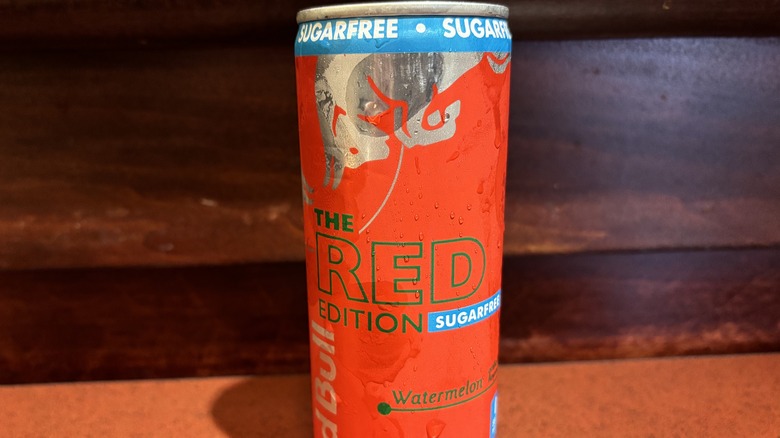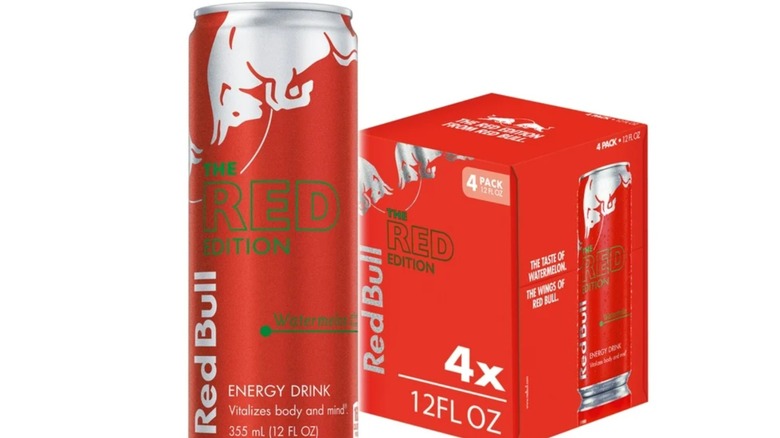When Does Red Bull's New Sugar-Free Watermelon Drink Come Out?
Although Red Bull has a pretty prolific flavor catalog, few have captured our hearts quite like Red Bull watermelon. Soon, the fan-favorite flavor will be available sans sugar, as the beverage company plans to roll out a sugar-free version just in time for summer.
Red Bull Red Edition sugar-free will become available for purchase on June 17 — as discovered by a Mashed employee who visited Red Bull's booth at the National Restaurant Association Show in Chicago's McCormick Place Convention Center on May 19. The sweet and fruity full-sugar version was released as a limited-time offering in 2020, only to become a permanent fixture for the brand the following year. It's touted as the new Red Edition, replacing the longstanding cranberry flavor, which according to a Reddit thread on the subject, was bittersweet for Red Bull fans. Personally, we were pleased with the decision (watermelon took the top spot when we ranked Red Bull flavors).
Much like with the original watermelon-flavored Red Bull, the Mashed employee who tasted the sugar-free version said it tasted less like an energy drink and more like a watermelon soda. Although it was a pleasing sipper and provided them a sweet little energy boost, the benefits — they said — were notably short lived.
Does less sugar mean healthier?
While it wasn't the first energy drink on the market, Red Bull and its 1997 release seemed to put energy drinks on the map. Loaded with caffeine (and oftentimes sugar and dietary supplements), they became a popular alternative to coffee.
However, energy drinks came under scrutiny in the 2000s after a series of deaths that may have involved such products forced the FDA to look a little closer at their ingredients lists. Although Red Bull's website props its drink up as an item that "vitalizes body and mind" with vitamins, water, and amino acids, consuming it regularly may still have health impacts.
With the watermelon variety containing 27 grams of sugar per can, drinking just one puts an adult male close to and an adult female over the daily limit that the American Heart Association recommends for sugar intake. High consumption of added sugar is associated with an increased risk of type 2 diabetes. The sugar-free versions, however, are typically made with sucralose and acesulfame K, two calorie-free sugar substitutes that sweeten the drink without the sugar spike. Although this option avoids sugar, some research indicates that sucralose could upset the gut microbiome and increase inflammation.

